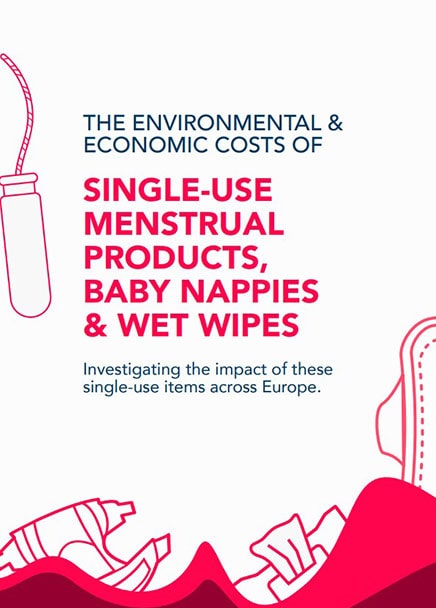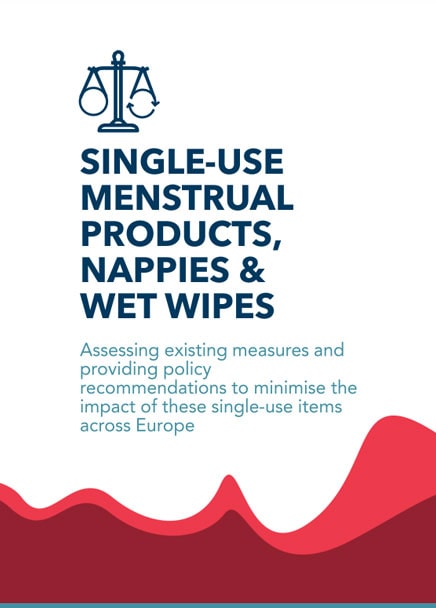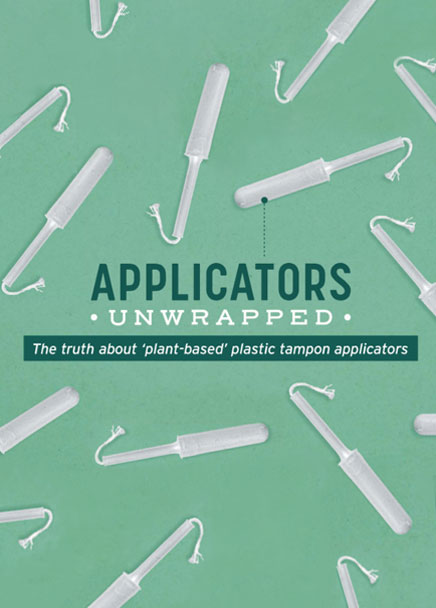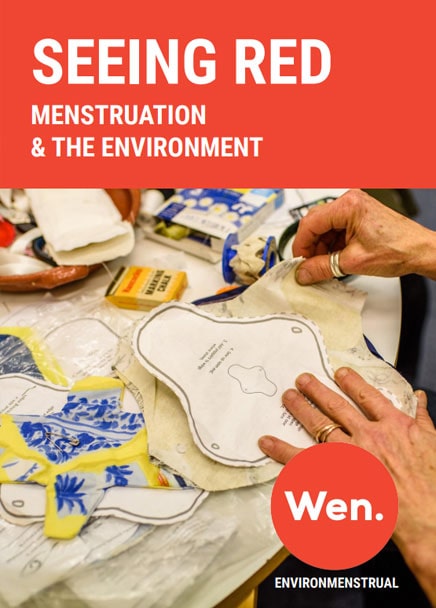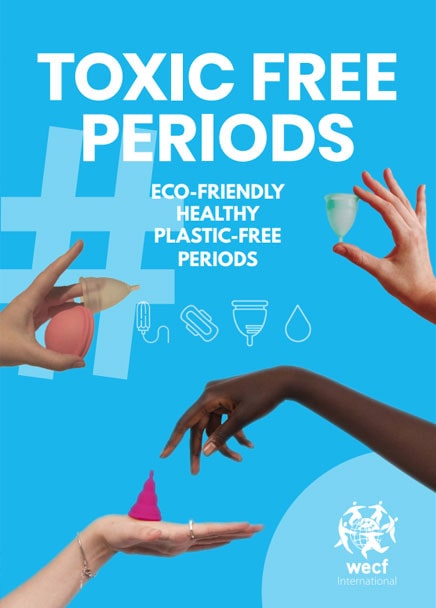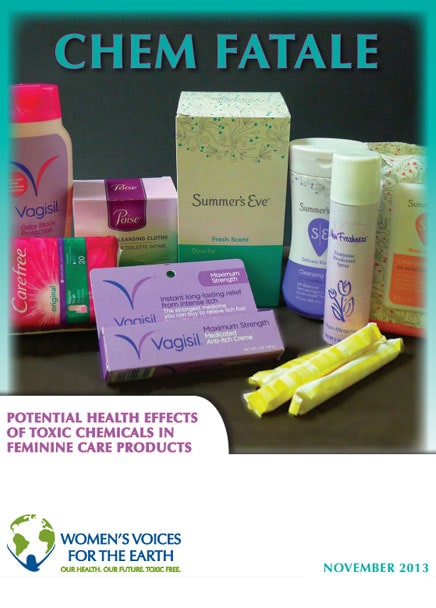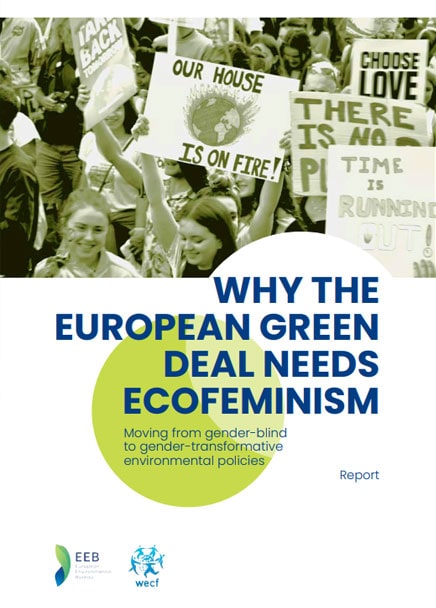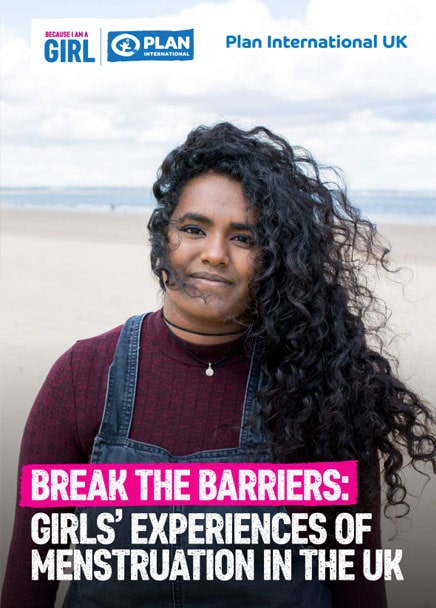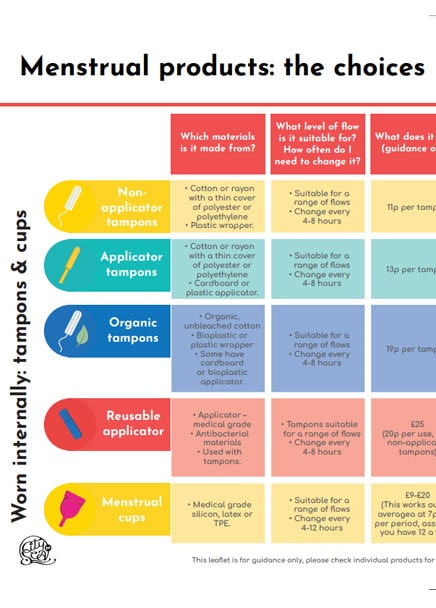Learn More
Understanding The Issue
A natural process occurs every month for (at least) half of the world’s population: menstruation. But this is of course not a problem! The problem is the menstruation taboo associated with menstruation, which leads to a lack of proper education & information and perpetuates the lack of accessibility to safe (toxic-free), fair (tax-free) and circular (reusable and plastic-free) products that menstruators need.

Nowadays, the vast majority of menstrual products being sold on the EU market (and globally) are single-use plastic and toxic items: including pads, liners and tampons, which lead to great environmental, economic, health and social impacts from production to disposal and beyond. Although plastic-free, toxic-free and reusable menstrual products are already making their way into the market, they are still the minority. This is due to many factors:

Find more below the link between menstruation and the environment, health and people's empowerment.
SINGLE-USE MENSTRUAL PRODUCTS & THE ENVIRONMENT
For many menstruators, the environmental impacts of menstrual products probably do not come as a surprise – we see the realities of the waste problem every month. Yet, these products have been overlooked in legislation and could play a key role in tackling our waste problem.
Single-use menstrual products create serious environmental impacts throughout their lifecycle – from production to end-of-life. In the 28 EU Member States in 2017, research found that: more than 49 billion menstrual products were consumed, resulting in an annual generation of around 590,000 tonnes of waste from these products alone. Worse still, typically 87% of these products then end up in landfills, while 13% are incinerated – creating knock-on impacts for the climate and our environment.
However, this is only where products are properly disposed of. The other challenge with menstrual products is where they are flushed down the toilet, and end up in our oceans and water systems creating economic and environmental consequences. Single-use menstrual products are the fifth most commonly found item found on European beaches.
One of the stand-out benefits to switching to reusable menstrual products is the reduction of waste generated. If only 20% of menstruators in the EU switch to reusable products, the amount of waste could be reduced by 100,000 tonnes per year!
Single-use menstrual products create serious environmental impacts throughout their lifecycle – from production to end-of-life. In the 28 EU Member States in 2017, research found that: more than 49 billion menstrual products were consumed, resulting in an annual generation of around 590,000 tonnes of waste from these products alone. Worse still, typically 87% of these products then end up in landfills, while 13% are incinerated – creating knock-on impacts for the climate and our environment.
However, this is only where products are properly disposed of. The other challenge with menstrual products is where they are flushed down the toilet, and end up in our oceans and water systems creating economic and environmental consequences. Single-use menstrual products are the fifth most commonly found item found on European beaches.
One of the stand-out benefits to switching to reusable menstrual products is the reduction of waste generated. If only 20% of menstruators in the EU switch to reusable products, the amount of waste could be reduced by 100,000 tonnes per year!
More information on periods & environment
SINGLE-USE MENSTRUAL PRODUCTS & OUR HEALTH
Currently, single-use menstrual products are dominating the market. Not only do they create problems when disposed of, but they are impacting our health too.
Period pads can contain up to 90% plastic, and tampons have plastic in them too, both in the string and their applicators. It goes without saying that our world has far too much plastic in it, but we certainly don’t need it in our bodies too!
Yet, plastics aren’t the only unwanted toxics in period products. Many single-use menstrual products and their packaging contain synthetic materials like rayon, adhesives, artificial fragrances and toxic chemicals such as phthalates, bisphenol-A and petrochemical additives, which are recognised environmental pollutants and are known to be endocrine-disrupting chemicals linked to diseases, such as heart disease, infertility and cancer.
We need to ensure that all menstrual products are toxic and plastic free, and that the very best products are readily available on the market at an affordable and accessible price.
Period pads can contain up to 90% plastic, and tampons have plastic in them too, both in the string and their applicators. It goes without saying that our world has far too much plastic in it, but we certainly don’t need it in our bodies too!
Yet, plastics aren’t the only unwanted toxics in period products. Many single-use menstrual products and their packaging contain synthetic materials like rayon, adhesives, artificial fragrances and toxic chemicals such as phthalates, bisphenol-A and petrochemical additives, which are recognised environmental pollutants and are known to be endocrine-disrupting chemicals linked to diseases, such as heart disease, infertility and cancer.
We need to ensure that all menstrual products are toxic and plastic free, and that the very best products are readily available on the market at an affordable and accessible price.
More information on periods & health
MENSTRUAL PRODUCTS & SOCIAL JUSTICE
We cannot talk about periods without talking about the societal structures and systems that perpetuate a taboo around menstruation. Despite periods being 100% natural, 100% powerful, and 100% the agency of the menstruator – our male-dominated society has had a lot to do with the way we hide, disguise and try to cover-up periods.
This week we want to be clear that all menstruators are their own agents, free to make their own choices about their bodies, their purchasing power, and their periods! We need to build a movement of empowered menstruators who feel educated and confident when making decisions about their periods – and this should be matched with policies that support wider access to products and education in schools.
Similarly, there is work to be done to make period products accessible for menstruators. Still today nearly one in five women struggle to pay for basic single-use menstrual products on a monthly basis in the EU and this has to change. We want to see financial support from governments to ensure that period products are not taxed, are fair, and that free products are accessible to those in need.
➡ An important benefit of reusable menstrual products are the long-term economic savings. Using a reusable menstrual product could generate annual savings of between €18 to €199 per person, with lifetime savings that could exceed €4,400.
This week we want to be clear that all menstruators are their own agents, free to make their own choices about their bodies, their purchasing power, and their periods! We need to build a movement of empowered menstruators who feel educated and confident when making decisions about their periods – and this should be matched with policies that support wider access to products and education in schools.
Similarly, there is work to be done to make period products accessible for menstruators. Still today nearly one in five women struggle to pay for basic single-use menstrual products on a monthly basis in the EU and this has to change. We want to see financial support from governments to ensure that period products are not taxed, are fair, and that free products are accessible to those in need.
➡ An important benefit of reusable menstrual products are the long-term economic savings. Using a reusable menstrual product could generate annual savings of between €18 to €199 per person, with lifetime savings that could exceed €4,400.
More information on periods & social justice
SINGLE-USE MENSTRUAL PRODUCTS & THEIR COSTS
From the amount of waste generated by these products one can already imagine how much it would cost for public administrators and consumers themselves to manage them in public sewer systems, treatment and clean-ups. First of all, collection costs related to this waste stream in Europe may be significant, varying from €1 per inhabitant per year in some regions of Greece and Italy, to almost €10 in Ireland.
In addition, there are costs resulting from the incineration and landfill of such waste. The total typical charge to landfill of one tonne of municipal waste in the EU (the tax, plus the middle of the range of gate fees) ranges from €17.50 in Lithuania to up to €155.50 in Sweden. The total typical charge for incineration (tax plus the middle of the range of gate fees) for one tonne of municipal waste in the EU ranges from €46 in Czech Republic to €174 in Germany.
But the public costs associated with these items do not stop there. There is also the marine litter costs, including the costs of: (i) cleaning up the beaches, (ii) the obstruction of the engines, (iii) costs of hospitalisation due to the impact on human health, (iv) income losses in the fishing industry due to a reduction in the population of fish or its own pollution, (v) loss of income in the tourism sector, as well as the (vi) economic costs associated with welfare: impacts on human health, loss of aesthetic and cultural values, etc.
It is estimated that the maintenance and unblocking of these facilities, together with the waste disposal of sewage debris removed in wastewater treatment plants costs the European Union between €500 – €1,000 million per year. This cost is passed on to all consumers through water bills regardless of whether they use these products or not.
In addition, there are costs resulting from the incineration and landfill of such waste. The total typical charge to landfill of one tonne of municipal waste in the EU (the tax, plus the middle of the range of gate fees) ranges from €17.50 in Lithuania to up to €155.50 in Sweden. The total typical charge for incineration (tax plus the middle of the range of gate fees) for one tonne of municipal waste in the EU ranges from €46 in Czech Republic to €174 in Germany.
But the public costs associated with these items do not stop there. There is also the marine litter costs, including the costs of: (i) cleaning up the beaches, (ii) the obstruction of the engines, (iii) costs of hospitalisation due to the impact on human health, (iv) income losses in the fishing industry due to a reduction in the population of fish or its own pollution, (v) loss of income in the tourism sector, as well as the (vi) economic costs associated with welfare: impacts on human health, loss of aesthetic and cultural values, etc.
It is estimated that the maintenance and unblocking of these facilities, together with the waste disposal of sewage debris removed in wastewater treatment plants costs the European Union between €500 – €1,000 million per year. This cost is passed on to all consumers through water bills regardless of whether they use these products or not.
